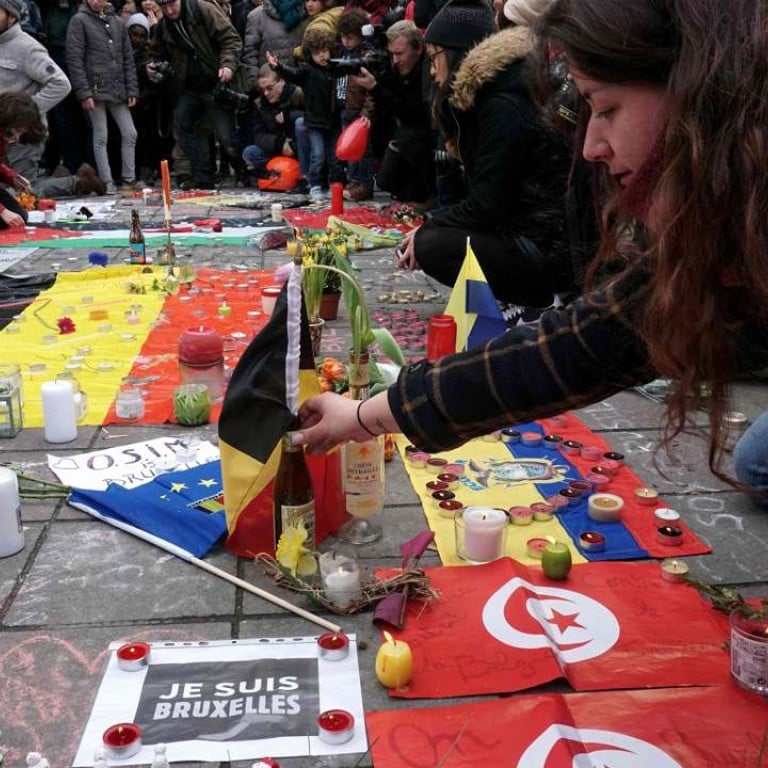
Brussels bombings: Europe must rethink its tactics if headway is to be made in battle against jihadists
Cool heads and a careful strategy of cooperation and coordination have to be adopted to protect citizens while not eroding their rights and values
Each time jihadi terrorists strike, the same anguished words are voiced: how and why. Those are again the cries from victims, their families and officials as Brussels recovers from Tuesday’s brutal attacks by Islamic State at the airport and a subway station near the European Union’s headquarters. There will eventually be answers and efforts made to improve the gaps in security and intelligence that failed to protect the more than 30 people killed and scores injured. Showing empathy for the victims and condemning the perpetrators are our instant reactions, but there is also the reality that Islamists have complex and sophisticated networks that will take time to dismantle during which each one of us could be a target.
The same emotions flooded the world four months ago after bombings and shootings took the lives of 130 innocent civilians in Paris. Then, as now, solidarity was expressed and governments vowed to work closer. But knowing what went wrong and promising to fix it is not enough without concerted action. Another strike so soon after on a city that is the de facto European capital says much about the nature of the challenge.
Just four days before the attacks, Belgian police arrested Saleh Abdeslam, the suspected strategist behind the Paris atrocities. Information he gave his captors led them to believe a bombing in Brussels was imminent, prompting them to step up security. Past intelligence failures have, rightly or wrongly, given the city’s authorities a reputation for being a weak link in the fight against terrorism. Belgium has become known as a centre for Muslim extremism in Europe, having contributed more fighters to Islamic State than any other European country.
Belgium’s counter-terrorism shortcomings have to be fixed as do its public security measures. But there is also a significant problem with Europe’s porous internal borders and intelligence-sharing between governments. Nor will it be easy to defeat radicals who are constantly refining tactics and techniques to outwit authorities. That is aside from dealing with the societal ills of unemployment, discrimination and racism that are fuelling support for extremist groups.
Defeating Islamic State involves more than winning back territory it has taken in Syria and Iraq. It calls Europe its battlefield and bombing Brussels after Paris gives a measure of legitimacy to its claim. Cool heads and a careful strategy of cooperation and coordination have to be adopted to protect citizens while not eroding their rights and values.

